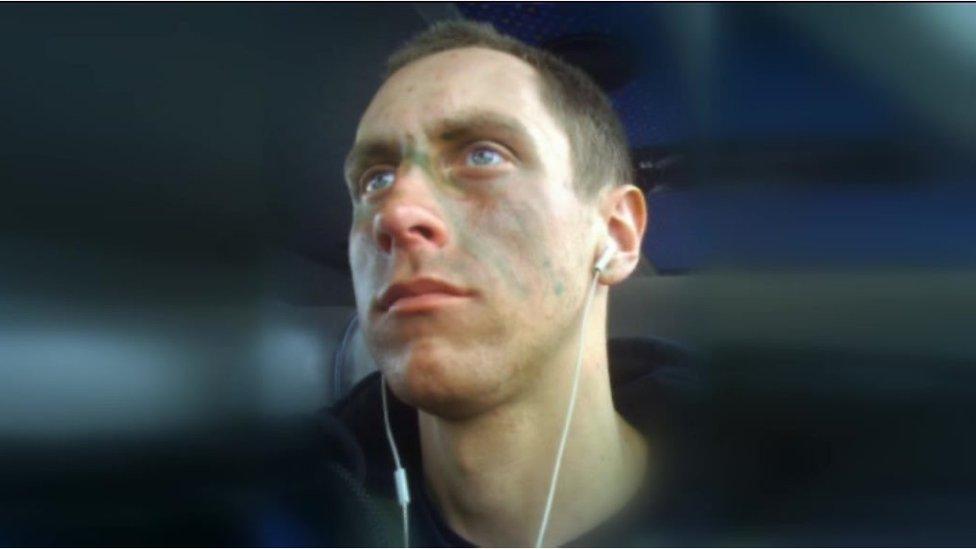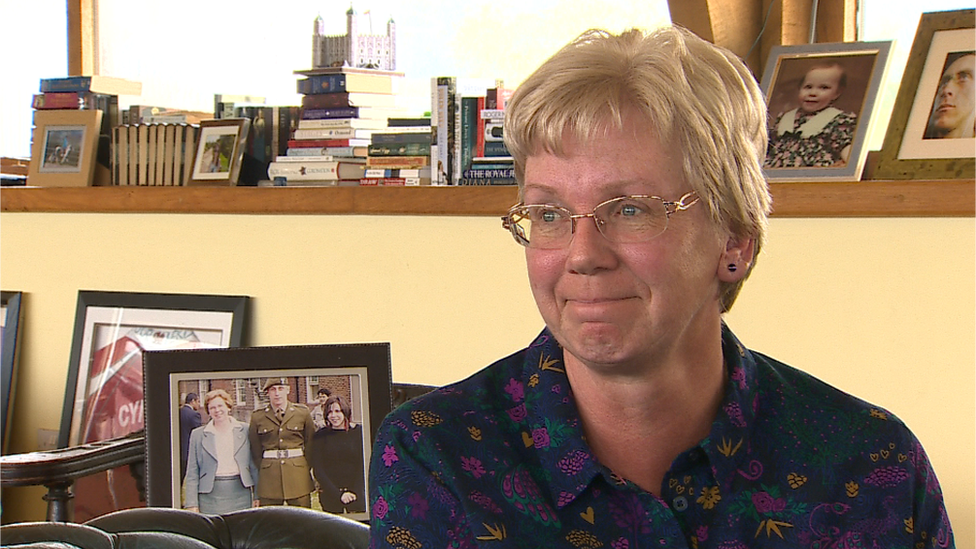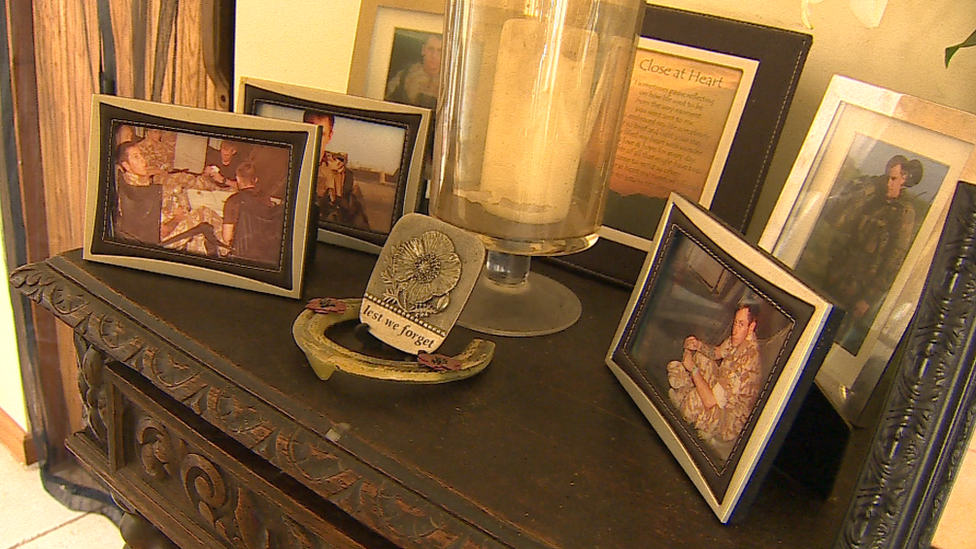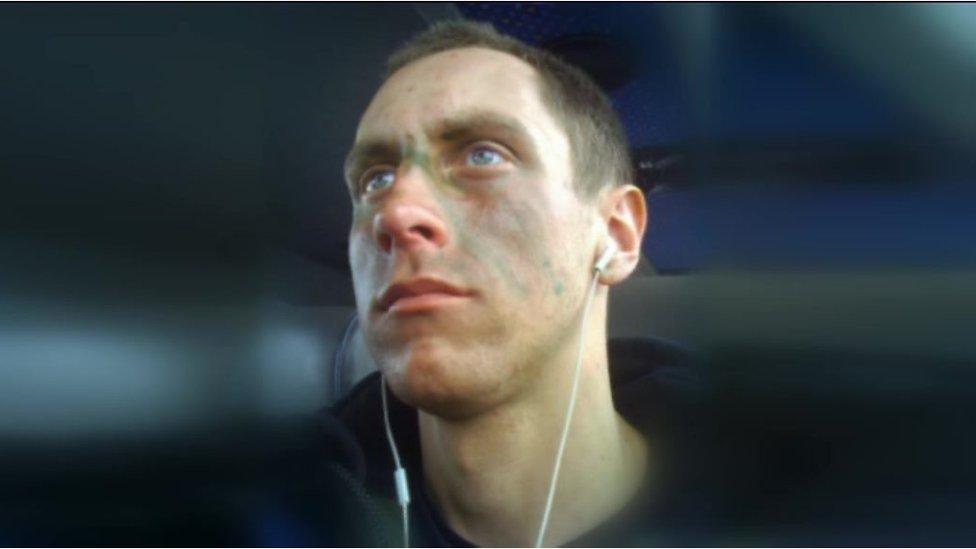Welsh Warrior charity in memory of soldier to close
- Published

Pte Richard Hunt died after his vehicle was caught in an explosion in Helmand Province
The mother of the 200th British soldier to die in Afghanistan says she hopes a charity in his honour had changed public perceptions of forces veterans.
Pte Richard Hunt, from Abergavenny, Monmouthshire, died after his vehicle was caught in an explosion in Helmand Province in August 2009.
His mother Hazel later started the Welsh Warrior Foundation which raised more than £250,000 in eight years.
But she said the charity has now come to a "natural end" and would close.
Sunday will mark nine years since Pte Hunt, of 2nd Battalion The Royal Welsh, was hit by the explosion while on patrol.
Mrs Hunt said she hoped the charity's lasting legacy would be greater awareness of the difficulties veterans face after active service.
The charity has helped larger causes, such as Veterans With Dogs, and individual ex-service men and women in need.

Hazel Hunt started the charity following her son's death in 2009
"Literally just after his funeral we raised £25,000 which we sent to Help For Heroes, and we carried it on from there," Mrs Hunt said.
"One of Richard's loves was music, he played drums in a band, so we thought about a music festival for families - we had four of them.
"We had people running marathons, people doing parachute jumps - you name it, people did it."
Mrs Hunt said the charity provided some help in grieving for her son, who died just a few days before his 22nd birthday.
"You don't get over it, you learn to live with it," she said.
"His mantra would be 'if you want to go and do something, get off your backside and go and do it', so hopefully he'd be proud of it."
Mrs Hunt said the foundation also aimed to alert others to the difficulties many soldiers were facing.

Mrs Hunt said she still planned to campaign on behalf of veterans
She frequently spoke out about the struggles faced in getting the right equipment while on tour and a lack of support for conditions including Post Traumatic Stress Disorder when soldiers returned home.
"I've learnt a lot… and they shouldn't just be left to rot on the scrap heap when they come home," she said.
"A lot of them are quite capable of going on and doing other things with the right support."
Mrs Hunt said with most British soldiers having left Afghanistan, other than for training roles, it felt like the "natural time" to wind the charity down.
She still plans to play an active role in campaigning on behalf of veterans and keeps in regular contact with her son's close friends.
"I think it's probably the hardest job that anyone will have to do - go to places like Afghanistan and fight for people who perhaps don't know you, don't understand you, don't want you there," she said.
"The British forces are the very best in the world at doing it, but we need to show them that we recognise it when they come home again."
Veterans With Dogs, which received £15,000 from the foundation, said the money would help train assistance dogs to reduce stress levels and make a "huge difference" to veterans suffering from service-related mental health conditions.
- Published14 February 2017

- Published18 February 2011